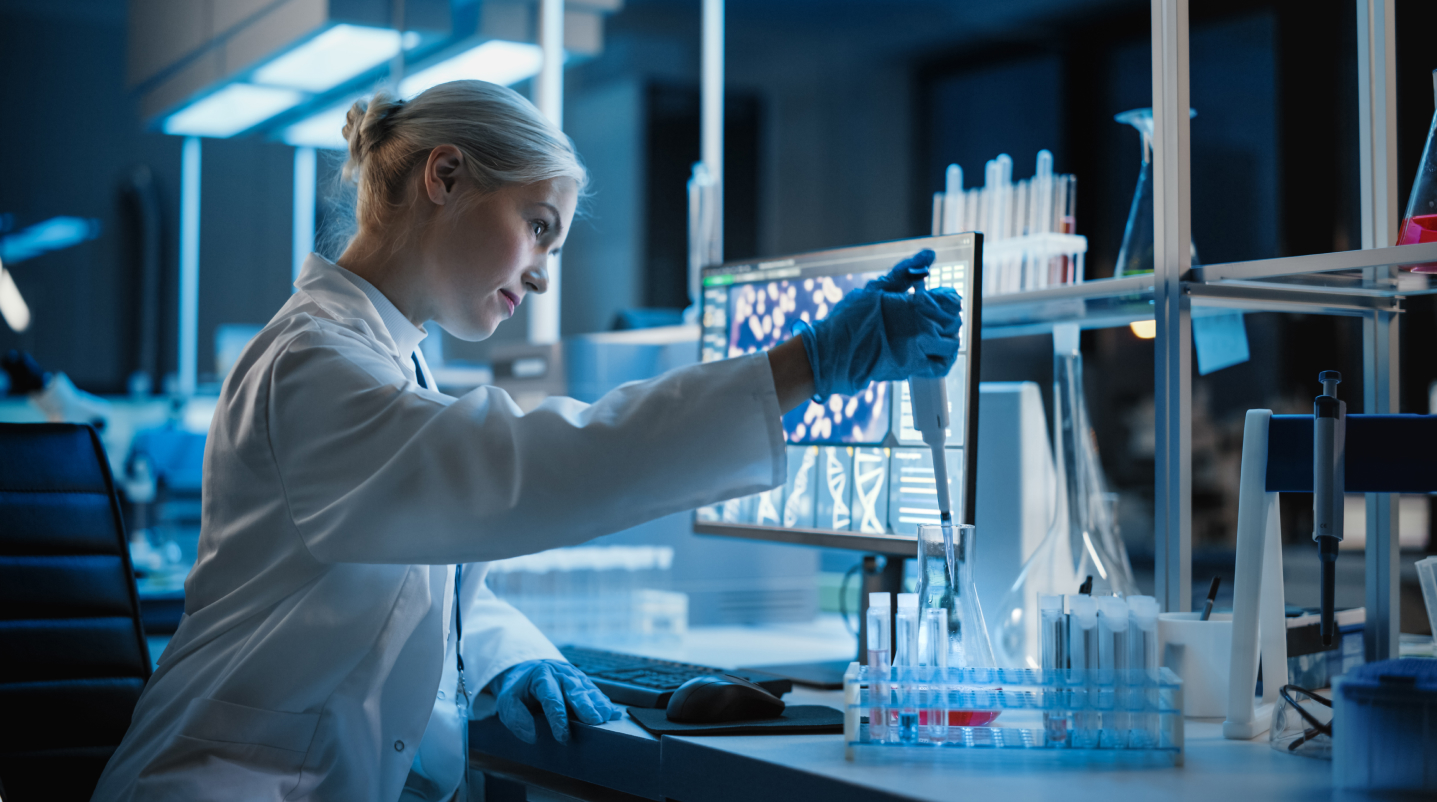



Blog | Technology
5th June, 2024

Potnuru Avinash is a pre-sales and business consultant with over three years of experience in the financial, healthcare, and life sciences industries. His expertise lies in leveraging emerging technologies to drive innovative solutions and products to market, collaborating closely with business and internal stakeholders. Avinash excels in developing technology POVs, go-to-market plans, win themes, and use cases for emerging technologies across various global verticals. He brings a perfect blend of business acumen and technical proficiency to his role.
This blog aims to examine the challenges posed by traditional drug discovery methods, elucidate the current situation, and highlight practical instances that display AI’s extraordinary potential in reshaping the future of medicine. In recent years, Insilico Medicine’s success stands out as a testament to AI’s potential in drug discovery. This innovative biotechnology company utilized AI algorithms to identify a novel drug candidate for idiopathic pulmonary fibrosis in just 46 days. The efficiency demonstrated in this success story serves as a compelling precursor to the broader impact AI could have on accelerating drug discovery.
AI drug discovery aims to make the process faster, cheaper, and more effective. It can use different AI techniques, such as machine learning, computer vision, natural language processing, and knowledge graphs, to analyze complex data sets from different sources like genes, papers, trials, and records. AI can also create diverse previously unseen drug candidates using generative models or evolutionary algorithms. AI drug discovery is growing, with many new companies and partnerships in the biotech and pharma sectors.
Some examples of AI drug discovery companies are Exscientia, BenevolentAI, Recursion, Insilico Medicine, and Atomwise. AI drug discovery also creates new opportunities for collaboration and innovation across different fields, such as biology, chemistry, computer science, medicine, and engineering.
The diverse nature of patient populations implies that a universal approach to drug development may only sometimes yield successful results. Finally, several scientific and technical challenges exist, such as understanding the underlying disease mechanisms, finding novel targets, developing accurate models, overcoming drug resistance, and ensuring safety and efficacy.
AI can revamp drug discovery by enabling faster, cheaper, and better solutions for unmet medical needs. However, AI requires high-quality data, advanced algorithms, and interdisciplinary collaboration among scientists, engineers, and clinicians to realize this potential fully.
Traditional methods, burdened by lengthiness, high costs, and uncertainties, are revitalized by AI’s efficiency and precision. Inspiring success stories, such as Insilico Medicine’s rapid identification of a drug candidate, underscore the transformative potential of AI in reshaping medicine’s future. The diverse strategies employed, from generative AI for novel molecules to optimizing drug design and predicting efficacy, exemplify AI’s multifaceted impact on the field. However, realizing this potential requires collaborative efforts, advanced algorithms, and high-quality data. As we stand at the cusp of a new era in drug discovery, the amalgamation of cutting-edge AI solutions, like those discussed, holds promise for faster, more cost-effective, and impactful solutions to address unmet medical needs.